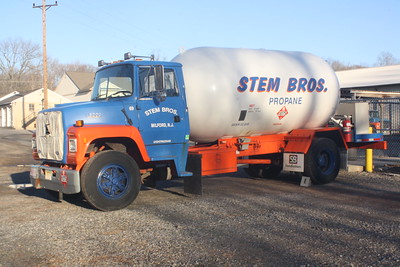
Propane and natural gas are both widely used as energy sources in residential, commercial, and industrial settings. These two fossil fuels share many similarities, but there are significant differences in their environmental impact and emissions. This article will provide an in-depth comparison of propane and natural gas, exploring their production, combustion efficiency, and overall ecological footprint.
Comparing the Two Gas Gases
Here’s a table comparing the greenhouse gas emissions of propane and natural gas:
| Greenhouse Gas Emissions | Propane | Natural Gas |
|---|---|---|
| Carbon Dioxide (CO2) | Higher emissions per unit of energy | Lower emissions per unit of energy |
| Methane (CH4) | Negligible emissions | Significant emissions during extraction, processing, and transportation |
| Global Warming Potential | Lower overall GWP | Higher overall GWP, mainly due to methane emissions |
| Lifecycle Emissions | Generally lower, accounting for methane leaks | Can be higher, depending on methane leaks and emissions |
Please note that this table provides a simplified comparison of the greenhouse gas emissions for propane and natural gas. Emissions can vary depending on factors such as extraction methods, transportation, and appliance efficiency.
Production and Extraction
Both propane and natural gas are derived from fossil fuels, primarily extracted through drilling processes. Natural gas is primarily composed of methane (CH4), while propane (C3H8) is a byproduct of natural gas processing and petroleum refining.
Natural gas extraction involves drilling into underground reservoirs and then separating the methane from other hydrocarbons and impurities. Propane is obtained by refining crude oil or processing natural gas, after which it is stored and transported as a liquid under pressure.
The environmental impact of the production and extraction processes varies depending on factors such as drilling techniques, waste management, and transportation methods. In general, the production of natural gas tends to have a lower environmental impact than propane due to more efficient extraction processes.
Greenhouse Gas Emissions
Both propane and natural gas produce greenhouse gas emissions when burned, contributing to climate change. However, the amount and type of emissions differ between the two fuels.
Natural gas emits less carbon dioxide (CO2) per unit of energy than propane when burned. This is because natural gas has a higher hydrogen-to-carbon ratio, resulting in lower CO2 emissions during combustion. In addition, natural gas combustion produces less carbon monoxide (CO) and sulfur dioxide (SO2) compared to propane.
However, methane, the primary component of natural gas, is a potent greenhouse gas with a global warming potential approximately 25 times greater than CO2 over a 100-year period. This means that small leaks or emissions of methane during extraction, processing, and transportation can have a significant impact on the environment.
Propane, on the other hand, has a lower global warming potential than methane. Although propane combustion generates more CO2 per unit of energy than natural gas, its overall greenhouse gas emissions are generally lower when considering the entire lifecycle of the fuel.
Energy Efficiency and Combustion
In terms of energy content, propane has a higher energy density than natural gas. This means that a smaller volume of propane can generate the same amount of heat as a larger volume of natural gas. This can lead to more efficient combustion, as less fuel is required to produce the same amount of energy.
However, the efficiency of an appliance or heating system also plays a critical role in determining the overall environmental impact. Natural gas appliances and heating systems are often more efficient than their propane counterparts, which can help offset the difference in energy density.
Air Quality and Pollutants
When comparing propane and natural gas in terms of air quality, natural gas is considered a cleaner-burning fuel. It produces fewer particulate emissions, nitrogen oxides (NOx), and volatile organic compounds (VOCs) compared to propane. These pollutants can contribute to smog formation and have adverse effects on human health.
That being said, propane is still considered a relatively clean fuel compared to other fossil fuels, such as coal and oil. Both propane and natural gas produce significantly fewer emissions than these dirtier alternatives.
Are Propane and Natural Gas Environmentally Friendly?
Propane and natural gas are often considered more environmentally friendly than other fossil fuels, such as coal and oil. Both fuels burn cleaner, producing fewer harmful emissions and air pollutants. However, labeling them as entirely “environmentally friendly” may be an overstatement, as they are still non-renewable fossil fuels that contribute to greenhouse gas emissions and climate change.
When comparing propane and natural gas to other fossil fuels, some advantages include:
- Lower greenhouse gas emissions: Both propane and natural gas produce fewer greenhouse gas emissions per unit of energy compared to coal and oil, with natural gas having the lowest carbon dioxide (CO2) emissions of all fossil fuels.
- Cleaner combustion: Propane and natural gas combustion results in fewer particulate emissions, nitrogen oxides (NOx), sulfur dioxide (SO2), and volatile organic compounds (VOCs) than coal and oil. This leads to better air quality and reduced impacts on human health.
- Energy efficiency: Natural gas appliances and heating systems are often more efficient than those using other fossil fuels, resulting in less energy waste and lower emissions.
However, there are also environmental concerns associated with propane and natural gas:
- Methane emissions: Natural gas is primarily composed of methane, a potent greenhouse gas with a global warming potential 25 times greater than CO2 over a 100-year period. Methane leaks and emissions during extraction, processing, and transportation can have significant environmental impacts.
- Extraction and production: The extraction and production processes for propane and natural gas can have negative environmental consequences, such as habitat disruption, water pollution, and the release of harmful chemicals.
In conclusion, while propane and natural gas are cleaner and more environmentally friendly than other fossil fuels, they are not entirely without environmental impacts. The long-term solution for reducing greenhouse gas emissions and mitigating climate change is to transition to renewable energy sources like solar, wind, and hydroelectric power. In the meantime, propane and natural gas can be seen as transitional fuels that can help bridge the gap between traditional fossil fuels and renewable energy sources.
Conclusion
In conclusion, the question of whether propane is dirtier than natural gas depends on several factors, such as production methods, combustion efficiency, and the type of emissions being considered. While natural gas generally has a lower environmental impact during production and generates fewer emissions during combustion, methane leaks and emissions can offset these benefits.
Propane, on the other hand, has a lower global warming potential than methane and a higher energy density, which can lead to more efficient combustion. However, propane combustion generates more CO2 per unit of energy than natural gas and produces higher levels of certain pollutants, such as NOx and VOCs.
When considering the entire lifecycle of both fuels, propane’s overall greenhouse gas emissions are generally lower than natural gas, especially when accounting for methane leaks and emissions throughout the natural gas supply chain. Nevertheless, natural gas remains a cleaner option when it comes to air quality and pollutant emissions.
Ultimately, the choice between propane and natural gas should be made based on factors such as availability, cost, and specific application requirements. Both fuels have their own advantages and drawbacks, and each situation may warrant a different choice. For instance, if you live in an area with a well-developed natural gas infrastructure and efficient appliances, natural gas could be the more environmentally friendly option. On the other hand, if you’re in a remote location without access to natural gas pipelines, propane might be a better choice due to its portability and lower greenhouse gas emissions.
In the long run, transitioning to renewable energy sources, such as solar, wind, and hydroelectric power, will be necessary to mitigate climate change and reduce our reliance on fossil fuels. Nonetheless, understanding the differences between propane and natural gas can help us make more informed decisions about our energy consumption in the meantime.

Mike is an experienced propane technician with over 15 years of professional experience in the field. He has dedicated his career to helping customers with their propane needs, from installation to maintenance and repair. Together with Jeremy, he co-founded this website to provide useful information and guidance to customers seeking reliable propane services.



